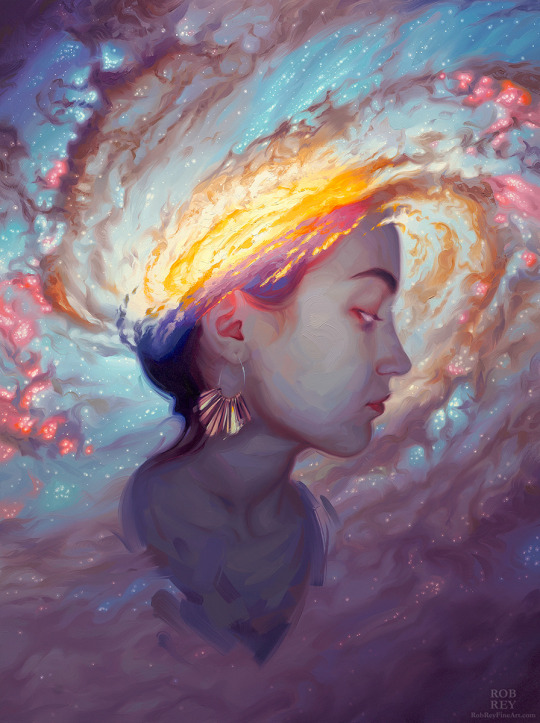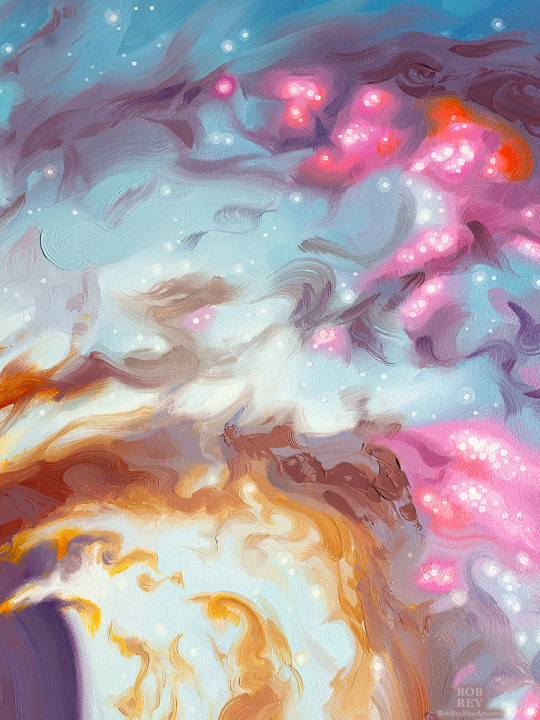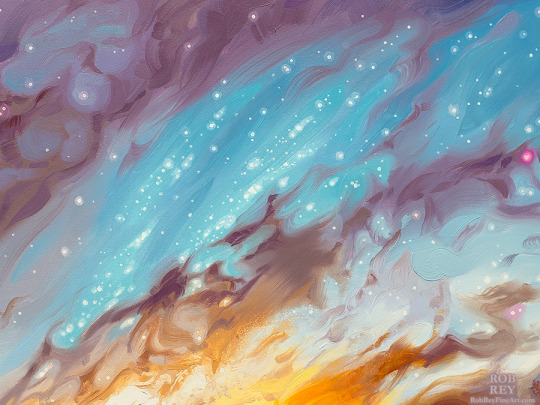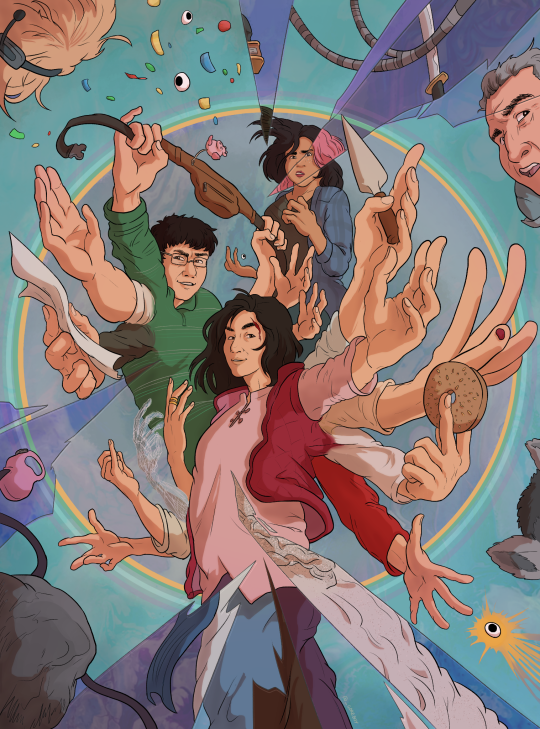#CompLexity
Explore tagged Tumblr posts
Text
Every complex ecosystem has parasites

I'm on a 20+ city book tour for my new novel PICKS AND SHOVELS. Catch me at NEW ZEALAND'S UNITY BOOKS in AUCKLAND on May 2, and in WELLINGTON on May 3. More tour dates (Pittsburgh, PDX, London, Manchester) here.

Patrick "patio11" McKenzie is a fantastic explainer, the kind of person who breaks topics down in ways that stay with you, and creep into your understanding of other subjects, too. Take his 2022 essay, "The optimal amount of fraud is non-zero":
https://www.bitsaboutmoney.com/archive/optimal-amount-of-fraud/
It's a very well-argued piece, and here's the nut of it:
The marginal return of permitting fraud against you is plausibly greater than zero, and therefore, you should welcome greater than zero fraud.
In other words, if you allow some fraud, you will also allow through a lot of non-fraudulent business that would otherwise trip your fraud meter. Or, put it another way, the only way to prevent all fraud is to chase away a large proportion of your customers, whose transactions are in some way abnormal or unexpected.
Another great explainer is Bruce Schneier, the security expert. In the wake of 9/11, lots of pundits (and senior government officials) ran around saying, "No price is too high to prevent another terrorist attack on our aviation system." Schneier had a foolproof way of shutting these fools up: "Fine, just ground all civilian aircraft, forever." Turns out, there is a price that's too high to pay for preventing air-terrorism.
Latent in these two statements is the idea that the most secure systems are simple, and while simplicity is a fine goal to strive for, we should always keep in mind the maxim attributed to Einstein, "Everything should be made as simple as possible, but not simpler." That is to say, some things are just complicated.
20 years ago, my friend Kathryn Myronuk and I were talking about the spam wars, which were raging at the time. The spam wars were caused by the complexity of email: as a protocol (rather than a product), email is heterogenuous. There are lots of different kinds of email servers and clients, and many different ways of creating and rendering an email. All this flexibility makes email really popular, and it also means that users have a wide variety of use-cases for it. As a result, identifying spam is really hard. There's no reliable automated way of telling whether an email is spam or not – you can't just block a given server, or anyone using a kind of server software, or email client. You can't choose words or phrases to block and only block spam.
Many solutions were proposed to this at the height of the spam wars, and they all sucked, because they all assumed that the way the proposer used email was somehow typical, thus we could safely build a system to block things that were very different from this "typical" use and not catch too many dolphins in our tuna nets:
https://craphound.com/spamsolutions.txt
So Kathryn and I were talking about this, and she said, "Yeah, all complex ecosystems have parasites." I was thunderstruck. The phrase entered my head and never left. I even gave a major speech with that title later that year, at the O'Reilly Emerging Technology Conference:
https://craphound.com/complexecosystems.txt
Truly, a certain degree of undesirable activity is the inevitable price you pay once you make something general purpose, generative, and open. Open systems – like the web, or email – succeed because they are so adaptable, which means that all kinds of different people with different needs find ways to make use of them. The undesirable activity in open systems is, well, undesirable, and it's valid and useful to try to minimize it. But minimization isn't the same as elimination. "The optimal amount of fraud is non-zero," because "everything should be made as simple as possible, but not simpler." Complexity is generative, but "all complex ecosystems have parasites."
America is a complex system. It has, for example, a Social Security apparatus that has to serve more than 65 million people. By definition, a cohort of 65 million people will experience 65 one-in-a-million outliers every day. Social Security has to accommodate 65 million variations on the (surprisingly complicated) concept of a "street address":
https://gist.github.com/almereyda/85fa289bfc668777fe3619298bbf0886
It will have to cope with 65 million variations on the absolutely, maddeningly complicated idea of a "name":
https://www.kalzumeus.com/2010/06/17/falsehoods-programmers-believe-about-names/
In cybernetics, we say that a means of regulating a system must be capable of representing as many states as the system itself – that is, if you're building a control box for a thing with five functions, the box needs at least five different settings:
http://pespmc1.vub.ac.be/REQVAR.html
So when we're talking about managing something as complicated as Social Security, we need to build a Social Security Administration that is just as complicated. Anything that complicated is gonna have parasites – once you make something capable of managing the glorious higgeldy piggeldy that is the human experience of names, dates of birth, and addresses, you will necessarily create exploitable failure modes that bad actors can use to steal Social Security. You can build good fraud detection systems (as the SSA has), and you can investigate fraud (as the SSA does), and you can keep this to a manageable number – in the case of the SSA, that number is well below one percent:
https://www.congress.gov/crs_external_products/IF/PDF/IF12948/IF12948.2.pdf
But if you want to reduce Social Security fraud from "a fraction of one percent" to "zero percent," you can either expend a gigantic amount of money (far more than you're losing to fraud) to get a little closer to zero – or you can make Social Security far simpler. For example, you could simply declare that anyone whose life and work history can't fit in a simple database schema is not eligible for Social Security, kick tens of millions of people off the SSI rolls, and cause them to lose their homes and starve on the streets. This isn't merely cruel, it's also very, very expensive, since homelessness costs the system far more than Social Security. The optimum amount of fraud is non-zero.
Conservatives hate complexity. That's why the Trump administration banned all research grants for proposals that contained the word "systemic" (as a person with so-far-local cancer, I sure worry about what happens when and if my lymphoma become systemic). I once described the conservative yearning for "simpler times," as a desire to be a child again. After all, the thing that made your childhood "simpler" wasn't that the world was less complicated – it's that your parents managed that complexity and shielded you from it. There's always been partner abuse, divorce, gender minorities, mental illness, disability, racial discrimination, geopolitical crises, refugees, and class struggle. The only people who don't have to deal with this stuff are (lucky) children.
Complexity is an unavoidable attribute of all complicated processes. Evolution is complicated, so it produces complexity. It's convenient to think about a simplified model of genes in which individual genes produce specific traits, but it turns out genes all influence each other, are influenced in turn by epigenetics, and that developmental factors play a critical role in our outcomes. From eye-color to gender, evolution produces spectra, not binaries. It's ineluctably (and rather gloriously) complicated.
The conservative project to insist that things can be neatly categorized – animal or plant, man or woman, planet or comet – tries to take graceful bimodal curves and simplify them into a few simple straight lines – one or zero (except even the values of the miniature transistors on your computer's many chips are never at "one" or "zero" – they're "one-ish" and "mostly zero").
Like Social Security, fraud in the immigration system is a negligible rounding error. The US immigration system is a baroque, ramified, many-tendriled thing (I have the receipts from the immigration lawyers who helped me get a US visa, a green card, and citizenship to prove it). It is already so overweighted with pitfalls and traps for the unwary that a good immigration lawyer might send you to apply for a visa with 600 pages of documentation (the most I ever presented) just to make sure that every possible requirement is met:
https://www.flickr.com/photos/doctorow/2242342898/in/photolist-zp6PxJ-4q9Aqs-2nVHTZK-2pFKHyf
After my decades of experience with the US immigration system, I am prepared to say that the system is now at a stage where it is experiencing sharply diminishing returns from its anti-fraud systems. The cost of administering all this complexity is high, and the marginal amount of fraud caught by any new hoop the system gins up for migrants to jump through will round to zero.
Which poses a problem for Trump and trumpists: having whipped up a national panic about out of control immigration and open borders, the only way to make the system better at catching the infinitesimal amount of fraud it currently endures is to make the rules simpler, through the blunt-force tactic of simply excluding people who should be allowed in the country. For example, you could ban college kids planning to spend the summer in the US on the grounds that they didn't book all their hotels in advance, because they're planning to go from city to city and wing it:
https://www.newsweek.com/germany-tourists-deported-hotel-maria-lepere-charlotte-pohl-hawaii-2062046
Or you could ban the only research scientist in the world who knows how to interpret the results of the most promising new cancer imaging technology because a border guard was confused about the frog embryos she was transporting (she's been locked up for two months now):
https://www.msn.com/en-us/health/other/horrified-harvard-scientists-ice-arrest-leaves-cancer-researchers-scrambling/ar-AA1DlUt8
Of course, the US has long operated a policy of "anything that confuses a border guard is grounds for being refused entry" but the Trump administration has turned the odd, rare outrage into business-as-usual.
But they can lock up or turn away as many people as they want, and they still won't get the amount of fraud to zero. The US is a complicated place. People have complicated reasons for entering the USA – work, family reunion, leisure, research, study, and more. The only immigration system that doesn't leak a little at the seams is an immigration system that is so simple that it has no seams – a toy immigration system for a trivial country in which so little is going on that everything is going on.
The only garden without weeds is a monoculture under a dome. The only email system without spam is a closed system managed by one company that only allows a carefully vetted cluster of subscribers to communicate with one another. The only species with just two genders is one wherein members who fit somewhere else on the spectrum are banished or killed, a charnel process that never ends because there are always newborns that are outside of the first sigma of the two peaks in the bimodal distribution.
A living system – a real country – is complicated. It's a system, where people do things you'll never understand for perfectly good reasons (and vice versa). To accommodate all that complexity, we need complex systems, and all complex ecosystems have parasites. Yes, you can burn the rainforest to the ground and planting monocrops in straight rows, but then what you have is a farm, not a forest, vulnerable to pests and plagues and fire and flood. Complex systems have parasites, sure, but complex systems are resilient. The optimal level of fraud is never zero, because a system that has been simplified to the point where no fraud can take place within it is a system that is so trivial and brittle as to be useless.

If you'd like an essay-formatted version of this post to read or share, here's a link to it on pluralistic.net, my surveillance-free, ad-free, tracker-free blog:
https://pluralistic.net/2025/04/24/hermit-kingdom/#simpler-times
617 notes
·
View notes
Text
I love whatever genre of character this is.




#emo#but not like “fall for yew” emo#like “emotionally unstable” emo#like “dark everything” emo#like “incredibly complex character” emo#dark aesthetic#fanfic#fanfiction#x reader#complexity#complex characters#dune x reader#dune part 1#dune part 2#dune#paul atreides#gokurakugai#yoru#yoru gokurakugai#the void#sentry#marvel#thunderbolts#lies of p x reader#lies of p#lop#pinocchio#p lies of p#pinnochio lies of p#marvel thunderbolts
219 notes
·
View notes
Text

#cannibalistic#cannibal aesthetic#cannibalposting#religous horror#religous imagery#religous trauma#horror#complexity#abilify#prozac save me
180 notes
·
View notes
Note
so if we're acknowledging that judith butler is full of shit, can we now get over all the gender bullshit she started?
It turns out that the world is more complex than that.
Butler is full of shit and self-contradictory on Jewish identity and Israel, but that doesn't invalidate all their work or prevent the intellectually honest observer from acknowledging that their theory of gender as performative is interesting, influential, and supported by anthropology.
Imagine if we refused to see value in the work of people who were terribly wrong about something.
Pablo Picasso was a world-changing artist and an abusive, misogynistic asshole.
Richard Wagner's work reshaped Western music. He also wrote vile antisemitic essays and inspired generations of cultural bigots.
Roald Dahl wrote Matilda, The BFG, Charlie and the Chocolate Factory. He also made antisemitic public comments, even blaming Jews for global conflict.
James Watson co-discovered DNA and won the Nobel Prize for the double helix. He also made repeated, unsupported racist statements about intelligence and genetics.
Thomas Jefferson wrote "all men are created equal," and enslaved 600 people. His hypocrisy doesn't cancel out his contributions to political development.
Brilliance ≠ wisdom
Success ≠ goodness
Wrong about something ≠ Incapable of doing something valuable
Nobody is right about everything, but most still have something of value to share.
Including Judith Butler.
139 notes
·
View notes
Text





A Galaxy Within II 24 x 18 inches, Oil on Panel, 2022 We are each a little galaxy of our own. It's a mind-bending exercise trying to comprehend the 100 billion stars found in a typical galaxy. Yet, each of us has roughly the same number of neurons in our own brain, performing a symphony of consciousness. We are a staggeringly complex and unique collection of natural components, come together for a short, precious moment.
If you’re disappointed by the realization that we are “just” collections of atoms, then you may want to consider more deeply the unfathomable multitude of those atoms, how intricately organized they are to facilitate life, and the oceans of time it took for evolution to shape them into that configuration. The average human body is comprised of more atoms than there are stars, not just in our galaxy, but in the visible universe. These 7 octillion atoms are arrayed in astonishing complexity to create 500 trillion cells of numerous types, each with its own suite of exquisite molecular machines, precisely folded proteins, and ordered genetic code. It’s hard to comprehend how long it took for this intricate system to evolve. If that time were the Atlantic ocean at it’s narrowest crossing, then all of human history would represent the first 13 feet from the shore. Just to get back to the point where our ancestor was some kind of fish is roughly 185 million generations that had to survive and pass on their genes so that you could experience this world, with all its heartache, and its wonder. I highly recommend checking out the animations of Drew Berry and WEHI to help visualize the amazing molecular processes happening inside you at all times. https://youtu.be/WFCvkkDSfIU?si=ImQQrt3gaca3ELLF&t=113 Prints: https://robrey.storenvy.com
87 notes
·
View notes
Text

Just wanted to share this song with you.🤍
#poetry#love letters#words words words#quotes#thoughts#perspective#writers and poets#spilled ink#spilled heart#denying#complexity#life#hidden love#unrequited love#writers on tumblr#writing#artists on tumblr#emotions#i love you#spilled poetry#heaviness#hopelessly in love#love quotes#love#poets on tumblr#poems and poetry#Spotify#taylor swift#willow#how do i tell him
206 notes
·
View notes
Text
I think in Wicked (the musical at least – not sure about the novel), there's a bit of an uneasiness between the theme of "everyone is morally gray, no one is all bad or all good" and the fact that Elphaba is a freedom fighter against a fascist government that commits atrocities against a minority group.
Yes, the Wizard has some sympathetic qualities, Elphaba has some flaws and briefly turns to villainy toward the end, and Glinda is a mass of moral grayness under her perky pink facade. But for the most part it's clear who the villains are (the Wizard and Madame Morrible), Elphaba's stance against them is clearly heroic, and Glinda's choice to work for them is clearly a moral sell-out, with which she struggles and from which she eventually redeems herself. When the Animals' treatment parallels the treatment of Jews in Nazi Germany, you can't take a "both sides" view of the situation. But every now and then, the show seems to do just that – whether in the song "Wonderful" with the Wizard's talk of "moral ambiguities" (though of course in that song, he's trying to justify his actions and manipulate Elphaba into joining him), or Elphaba and Glinda's reconciliation in "For Good," where they paint themselves as having been equally at fault. And again, and again, I've heard people say "There are no real villains in Wicked: the whole point is that there are two sides to every story and neither side is all good or all bad." But if that's the intended message, does it honestly fit with a plot that involves fascism and racial persecution?
Another work of fiction that I think has some uneasiness between its themes is Disney's Beauty and the Beast. Namely between "the Beast as a suffering, misunderstood outcast" and "the Beast as a powerful bully who needs to be humbled and change." I think a lot of the controversy about that movie stems from the uneasiness between those two themes.
On the one hand, the Beast is a spoiled, selfish prince, who was cursed as punishment for shutting out a poor beggar woman, who has a terrifying temper, and who orders others around and throws tantrums when he doesn't get his own way. His beastly appearance and mannerisms can be seen as outward symbols of his bad behavior, which is based in toxic class privilege and masculinity. From this perspective, Gaston is his kindred spirit, which is emphasized by visual cues: e.g. their similar striking blue eyes, or Gaston's pelt-covered, horned chair in the tavern that looks like the Beast's silhouette. The difference between them is that the Beast finally realizes he was wrong and changes his ways, while Gaston only becomes more beastly. But on the other hand, the Beast is also an "other", who hides from the world, who struggles with basic social skills, who is full of insecurity and self-loathing, whom Belle bonds with because they're both misfits, whose bestial mannerisms and overpowering rages are at least partly because the spell is warping his mind (in other words, a magical mental illness), and whom a mob tries to murder just because he looks scary. Analogies have rightly been drawn between the Beast and victims of racism, homophobia, or other prejudice. From this viewpoint, Gaston is his opposite: the type of privileged boor who receives undeserved hero-worship just because he's handsome and charismatic, and who persecutes "others" like the Beast.
When people view it chiefly as a story about the taming of a powerful bully, you hear accusations of "Stockholm Syndrome" and of the dangerous fantasies of changing an abuser. Viewing the Beast as a misunderstood outcast, who finds acceptance in a fellow outcast and who overcomes his mental health struggles and bad coping mechanisms as a result, reduces those accusations. But if you view the Beast chiefly as a misunderstood outcast, then his character arc can feel disempowering: so much of it consists of learning to be more people-pleasing and self-effacing, not to mention re-learning "normal" human manners and behavior (as an autistic person, I know I've sometimes felt "He needs to mask to be loved"), and he becomes fully "normal" by becoming human again in the end.
Maybe there is no uneasiness between these different themes: maybe it's just complexity. Maybe my feelings on the subject shows that I'm autistic and struggle with things that aren't black-and-white. But in both of these works of fiction, I do sometimes feel as if the writers were trying to tell two different stories at once, which sometimes fit together, sometimes not.
Does anyone else feel that way about other works of fiction? Can you name any other stories with multiple themes that seem slightly opposed and uneasy together?
84 notes
·
View notes
Text

Feeling grounded, strong, and very simple. This is life filled with complexity but simple and ordinary. As it is.
K.S. Janes
View from the grounds of my retreat space. Lovely place to have experienced.
96 notes
·
View notes
Text
Arcane - S.2 Ep.2 Opening
Something that I’ve always admired about Arcane is its ability to tap into the most heartbreaking concepts, and portray them in a breathtaking way that puts across the stark reality of such concepts, yet blends in the beauty of visual symbolism, dialogue, and emotional complexity.

The opening scene of S.2, Ep.2 is a brilliant example of heartbreak and grief, with Jinx’s farewell to Silco cutting deeply to the core of her character. Her words, especially, “Except this time, you aren’t here to put it all back together, because someone put all those holes in you,” carry a devastating emotional weight. What makes this line so heart-wrenchingly haunting is its childlike simplicity, masking the violent nature of Silco’s death behind a tone of innocence.
The phrasing feels almost as though a child were trying to make sense of something incomprehensible, softening the horror of death by turning it into something more clear and manageable. “Put it all back together” evokes the imagery of broken toys, where fixing things can be an act of reassurance and love. Silco was the one who used to ‘put her back together’ when her mind fractured, acting as both a caretaker and the very creator of her evolving identity. Now, the reversal is straight-up cruel; she quite frankly cannot repair him, and the finality of “all those holes in you” is heartbreakingly literal, yet phrased as if a child were describing a once revered doll, lost by damage.
This childlike lens shines a tragic contrast with the reality of Jinx’s world. It’s a brutal, unforgiving place that has stolen her innocence time and time again, yet in this moment, the words suggest a yearning to escape the harshness. This juxtaposition mirrors her core struggle - wavering between a fractured, older psyche, and the lost, uncertain child she once was.
Visually, the scene is amplified with its soft, muted underwater setting, a place where her words like bubbles seem to float, untethered by logic or chronology. It’s as if she’s clinging to the last remnants of her childhood: words, images, and a desperate belief that things can be undone, even when they can’t. In the water, time itself seems irrelevant, just as it does in grief.
This quote also ties directly to Silco’s role in her life. Despite his manipulations, he became a parental figure who accepted her for all her chaos. Her phrasing suggests she still sees him in this light, not as the dangerous and cunning underlord of Zaun, but as a steady, almost mythical presence who was always there to catch her when she fell. This childlike portrayal of Silco’s death renders it even more tragic. She simplifies the trauma into something she can understand and endure; a defense mechanism as fragile and devastating as Powder’s remaining sense of self.
I just love how this moment captures so much of what makes Arcane unforgettable. It is raw and poetic, balancing emotional complexity with a delicate touch of innocence that both humanises Jinx and deepens the tragedy of her world. I swear this kind of portrayal is so rarely done well, and oh my goodness when it is..
#arcane#jinx#jinx arcane#silco#arcane silco#jinx and silco#media literacy#analysis#beautiful#grief#symbolism#visual symbolism#emotional complexity#complexity#powder#powder arcane#help this is consuming my life#any requests?#love arcane#quotes#quote analysis#character dialogue
69 notes
·
View notes
Text
Out of a desire to be valued by others, we sometimes filter our lives to make ourselves look better than we are. We carefully sweep away anything that might suggest we are flawed or limited, while at the same time drawing attention to the parts of us others will like and enjoy.
We perform this kind of filtering not only for ourselves, but also for the artworks we create. We believe others will judge us harshly if we share a flawed creation. We think they will label us as unskilled or uninformed, or they might tell others our work is unattractive or unrefined. These outcomes are both possible and distressing, so we limit what we share to the best of the best.
But in suppressing our art, we not only project an outward image of creativity and the creative process that is false, we also limit the expression of the very self we want others to appreciate.
Read more...
40 notes
·
View notes
Text
THIS!!

#bridgerton s3#bridgerton season 3#the carriage scene#polin bridgerton#bridgerton memes#polin#bridgerton#bridgerton netflix#bridgerton s3 part 2#bridgerton season 3 spoilers#colin x penelope#colin bridgerton#penelope bridgerton#bridgerton 3#lady whistledown#colin x lady whistledown#colin x reader#complex post traumatic stress disorder#complexity#totally complex love&fiction#complex characters#leading men
135 notes
·
View notes
Quote
Your Core Values are the "glue" that holds your business together.
Doris P. Johnson
#quotes#Doris P. Johnson#thepersonalwords#literature#life quotes#prose#lit#spilled ink#business-advice#business-management-training#business-quotes#business-start-up#business-success#complex#complexities#complexity#create#creative#creativity#entrepreneur#entrepreneurial#entrepreneurship#innovation#innovation-quotes#knowledge#simple#simplicity#values#values-and-beliefs#values-and-principles
47 notes
·
View notes
Quote
He who divides the world into two parts moves in the sphere of abstractions... The world as it is, and not as people dream it to be, is not divided into two camps: it is infinitely more complex and diverse.
Nikolai Berdyaev, "Political Testament"
#philosophy#quotes#Nikolai Berdyaev#Political Testament#distinctions#abstractions#abstract#language#meaning#complexity
139 notes
·
View notes
Text
I search for a word that encompasses all of it. Of course there isn't one. That's the deal with people. They're always more than one thing, and a lot of times they're even a collection of contradictory traits.
Emily Henry, from Great Big Beautiful Life
#i contain multitudes#complex#complexity#sweeping#people#character traits#identity#personality#writer problems#indescribable#contradictory#quotes#lit#words#excerpts#quote#literature#emily henry#great big beautiful life
28 notes
·
View notes
Text

"Everything Everywhere All at Once"
Loved this movie with all my heart and still do! I will continue to post some of my old works that I originally published on instagram but soon I'll finally post some unreleased sketches.
#everything everywhere all at once#my art#fanart#digital drawing#movie#poster#hands#eeaao#complexity#confusion#paradox#multiverse#action#colorful#trippy#anatomy#perspective#goreboy_art
353 notes
·
View notes